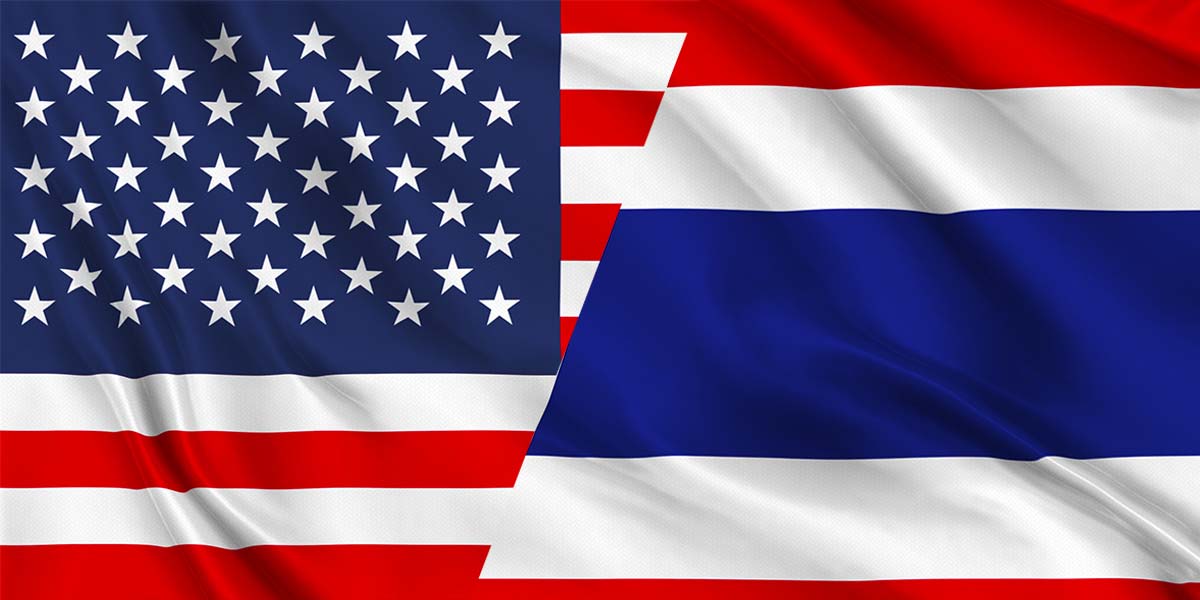Scott Bessent, the United States Secretary of the Treasury, offered rare and explicit praise for Thailand’s recent trade initiatives during his remarks at the Saudi-U.S. Investment Forum in Riyadh as part of President Donald Trump’s official visit. .
Bessent emphasized that the United States is sharpening its trade talks in the Asia-Pacific region, focusing particularly on China, Japan, and South Korea, all of which are undergoing leadership transitions. He further lauded recent proposals from Indonesia, Taiwan, and Thailand, noting: “Things are going very well in this part of the world.”
“We have had constructive negotiations with Japan. South Korea, which is currently in the process of a leadership transition, approached us with very strong proposals even before moving to elections. Indonesia has maintained excellent communications as well. Taiwan has come forward with some outstanding plans, and Thailand has also delivered similarly remarkable proposals,” said Bessent.
The US stance aligns closely with Thai Prime Minister Paetongtarn Shinawatra’s statement following the cabinet meeting on May 13. She confirmed that Thailand recently submitted a set of proposals to the US government.
Deputy Prime Minister and Finance Minister Pichai Chunhawachira, who also heads the Thai negotiation team, revealed that Thailand had prepared and directly delivered proposals to the U.S. Treasury Secretary and the United States Trade Representative (USTR). These proposals aim to broaden trade opportunities, reduce the trade deficit, and ensure balanced cooperation between the two nations.
Thailand’s Five Key Proposals to the United States
- Collaboration in Complementary Industries: Emphasis on industries where Thailand and the U.S. possess particular strengths, such as the premium pet food sector. Thailand is known for its high production standards, while the US offers strong capabilities in raw materials, technology, and advanced agriculture. Cooperation here could boost global competitiveness.
- Market Access and Tariff Reduction for US Agricultural Products: Thailand is open to negotiations to lower tariffs and open markets to US agricultural goods within the National Trade Estimate 2025 framework. For instance, Thailand proposes a flexible corn import quota to balance the interests of domestic producers.
- Increased Imports of Essential US Goods: Thailand plans to raise imports of US-sourced products crucial to the domestic market—such as natural gas, commercial aircraft, and temperate-climate fruits—which would help narrow the trade gap. Notably, there is an ambitious plan to boost LNG imports from the U.S. by no less than USD 1.2 billion (about THB 39.8 billion).
- Export Screening and Origin Verification: To prevent third-country circumvention, Thailand proposes implementing strict international-standard screening of export goods using verified raw material and manufacturing facility records. This aims to bolster Thai credibility as a reliable US trading partner.
- Promotion of Thai Investment in US Downstream Industries: The proposals encourage Thai capital to flow into US processing and manufacturing sectors, thereby reducing trade friction and enhancing the trans-Pacific value chain. This also seeks to mitigate pressures from Trump-era tariff policies.
Bessent’s statement—his first clear and positive mention of Thailand—signals Washington’s openness to enhanced collaboration with Bangkok, especially at a time when the United States recently ratified its first trade pact with the United Kingdom and brokered a 90-day “tariff truce” with China.
Under this temporary agreement, the US has slashed tariffs on Chinese goods from 145% to 30%, while China has reciprocated, cutting tariffs on US goods from 125% to 10%. This diplomatic opening presents a unique opportunity for Thailand and other Asian partners to deepen economic engagement with the United States amid an evolving global trade landscape.





